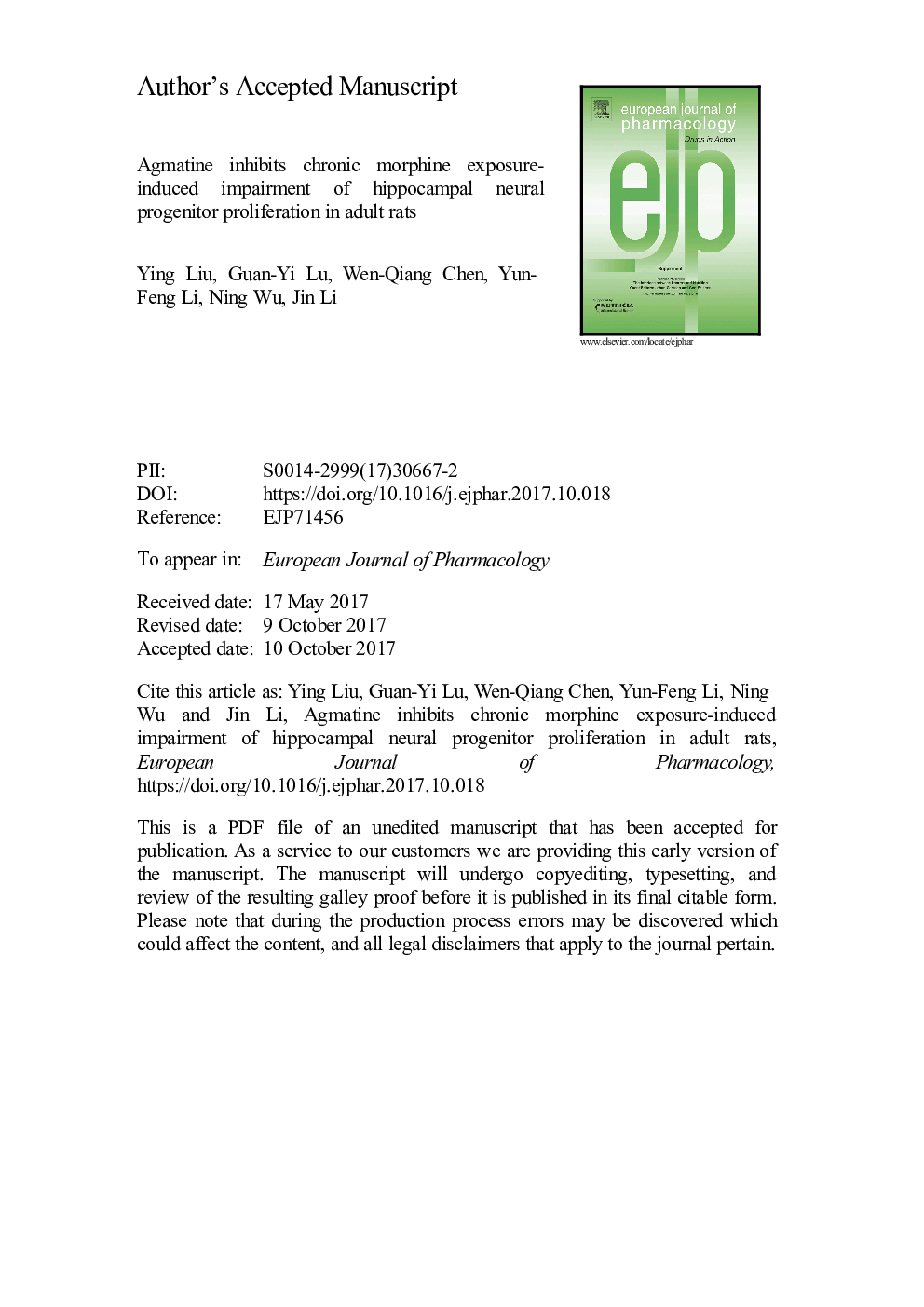| Article ID | Journal | Published Year | Pages | File Type |
|---|---|---|---|---|
| 8529763 | European Journal of Pharmacology | 2018 | 41 Pages |
Abstract
Our previous studies have shown that agmatine inhibited opioid dependence, yet the neural mechanism remains unclear. Growing evidence showed that opioids decrease neurogenesis in the adult hippocampal subgranular zone by inhibiting neural progenitor proliferation. However, whether agmatine affects chronic opioid exposure-induced impairment to hippocampal neural progenitor cell proliferation remains unknown. In the present study, we investigated the role of agmatine in hippocampal neural progenitors in morphine dependence rats. We found that chronic administration of morphine for 12 days induced morphine dependence in rats. This treatment not only decreased the proliferation of hippocampal neural progenitors in the granule cell layer, but also decreased the levels of hippocampal cAMP, pCREB and BDNF. However, these alterations can be restored to normal levels by co-treatment of agmatine (10 mg/kg, s.c.). In vitro treatment with agmatine (10 µM) for two days significantly increased proliferation of the cultured hippocampal neural progenitors. Concurrent treatment of agmatine (10 µM) with morphine (10 or 50 µM) reversed the supression of morphine-induced neural progenitor proliferation. In conclusion, we found that agmatine abolished chronic morphine-induced decrease in proliferation of hippocampal progenitors in vivo and in vitro, which may be due to the increase in cAMP-CREB-BDNF signaling. The enhancement of agmatine to proliferation of hippocampal progenitors may be one of the important mechanisms involved in the inhibition of morphine dependence by agmatine.
Related Topics
Life Sciences
Neuroscience
Cellular and Molecular Neuroscience
Authors
Ying Liu, Guan-Yi Lu, Wen-Qiang Chen, Yun-Feng Li, Ning Wu, Jin Li,
